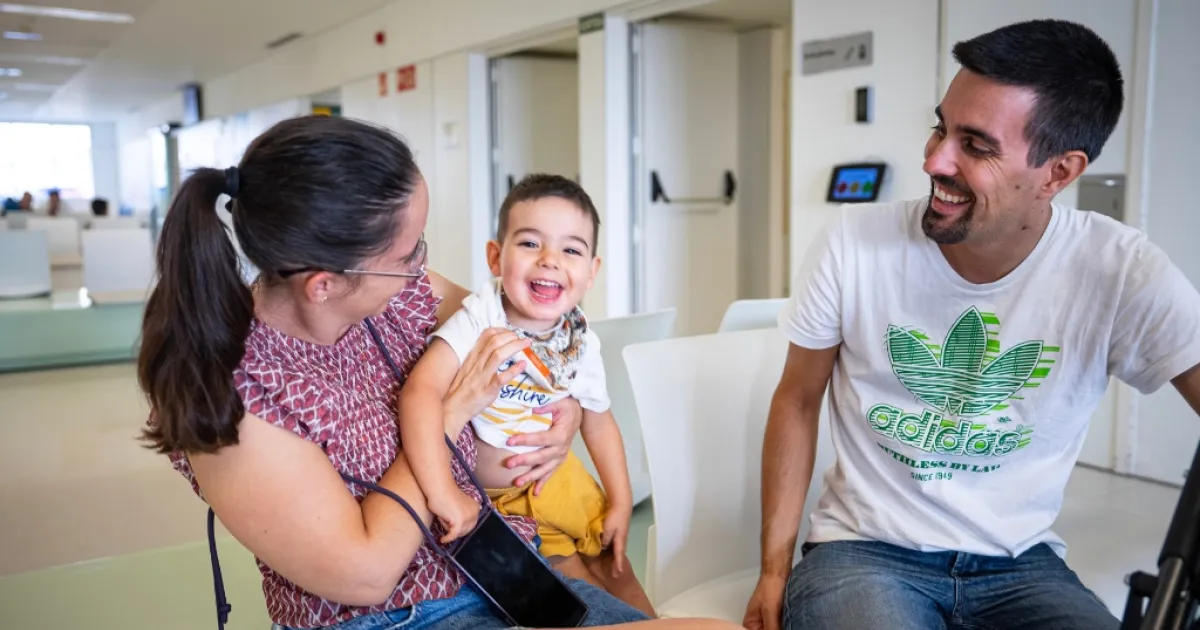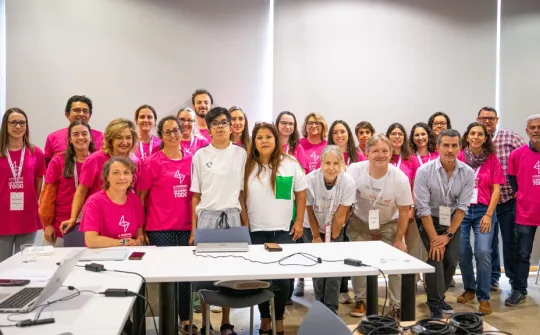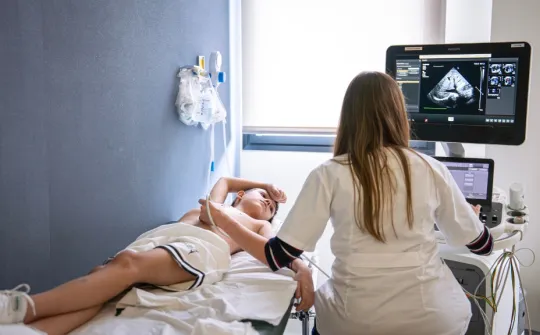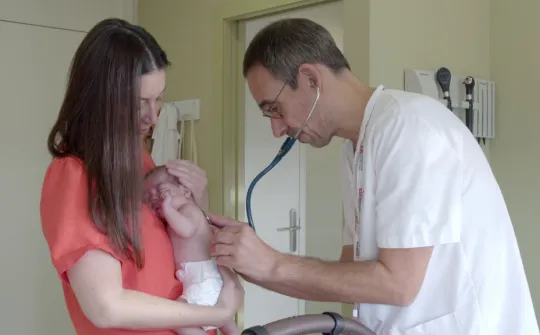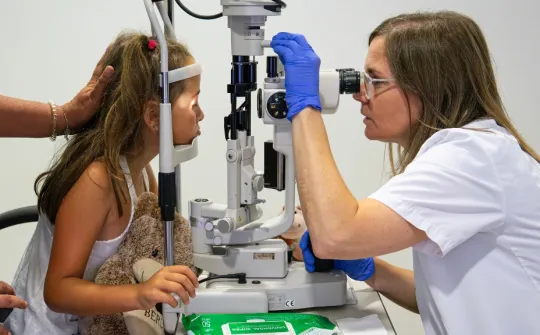First-time use of a gene therapy in Spain for an ultra-rare disease on a three-year-old child at the SJD Barcelona Children’s Hospital
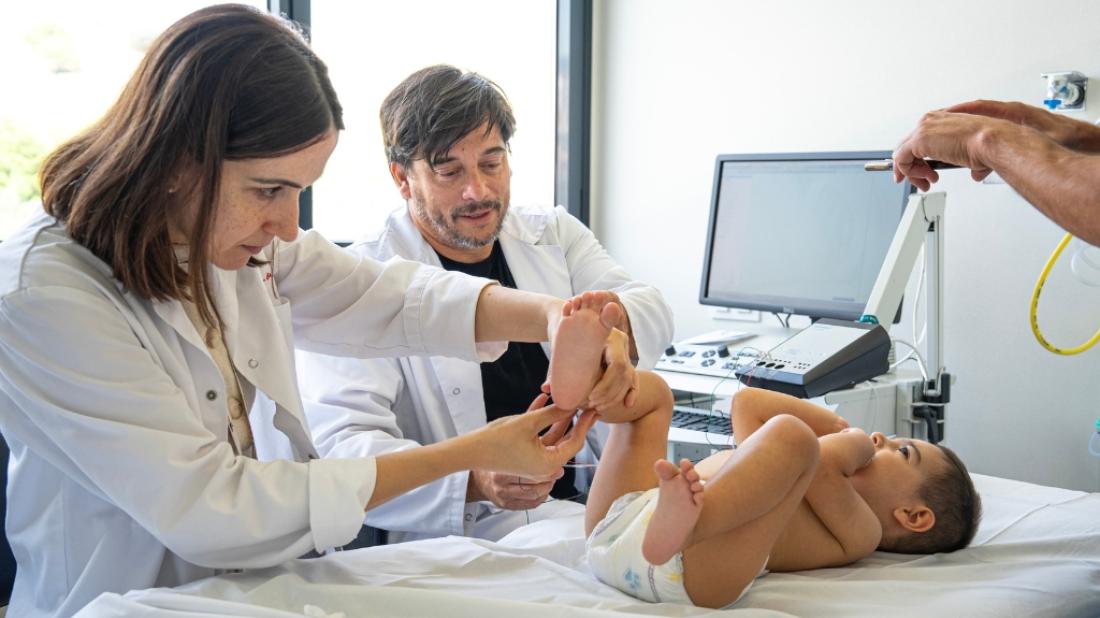
Daniel has hereditary spastic paraplegia type 50 (SPG50), a neurodegenerative genetic disease, and he is being treated with an experimental therapy that will soon be available to more affected patients across the world.
Daniel, a two-year-old boy from Malaga, has become the first patient under the age of three to be treated in Spain with an experimental gene therapy for hereditary spastic paraplegia type 50 (SPG50), a neurodegenerative genetic disease that is so uncommon, there are only around 100 diagnosed cases in the world. The innovative treatment, which has been made possible thanks to the partnership between the SJD Barcelona Children's Hospital and the Columbus Children's Foundation, represents a better hope for children with ultra-rare diseases in our country.
SPG50 is a serious disease that causes substantial delays to motor and cognitive development, affecting language, triggering microcephalus and eventually leading to severe muscle spasticity. If left untreated, it can result in partial or complete loss of mobility in the upper and lower limbs.
Daniel arrived at the SJD Barcelona Children's Hospital in May after a referral from the Columbus Children's Foundation, which has partnered with our hospital's Neuromuscular Diseases Unit due to our being a CSUR-accredited reference center in Spain for patients with hereditary spastic paraplegia. Both parties signed a collaboration agreement in April of this year in the hopes of creating an ecosystem of expert knowledge in Spain on advanced therapies for rare diseases. At present, these types of diseases affect around three million people in Spain.
Specialists from SJD contacted Daniel's referring physician at the Malaga hospital and then the case was assessed through laboratory tests, MRI scans and an interview with the family to confirm the compatibility of Daniel's clinical symptoms with SPG50, as well as his suitability for the experimental gene therapy treatment.
‘The symptoms exhibited by patients with SPG50 can also manifest in other neurological disorders. This means that it is often difficult to get an early diagnosis for the disease, which delays starting treatment,’ notes Laura Carrera, Neuropediatrician in the Neuromuscular Diseases Unit at the SJD Barcelona Children's Hospital.
The innovative approach taken by the SJD Barcelona Children's Hospital and the Columbus Children's Foundation is an example to follow when providing care for ultra-rare diseases in Spain. ‘This is an excellent example of how ultra-rare diseases should be tackled: through cooperation and altruism between a foundation, a center that develops the therapy and a hospital that can guarantee the safe and correct administration of the treatment and subsequent follow-up,’ highlights Andrés Nascimento, Coordinator of the Neuromuscular Diseases Unit at the SJD Barcelona Children's Hospital.
Spain, at the vanguard of therapeutic innovation for rare diseases
On 9 September, Daniel was given a single dose of Melpida, the only existing gene therapy for this disease, and he became the youngest patient to be treated in Spain and one of only 10 children treated in the world. The treatment was administered intrathecally with imaging guidance, and was a complete success, with no adverse reactions. The young boy only needed to be admitted to hospital for two days and he is currently progressing very well under the supervision of hospital specialists coordinating with staff from the Malaga hospital.
The development and administration of Melpida by the medical team at the SJD Barcelona Children's Hospital was only possible thanks to a solid international collaborative network: the therapy was developed at the University of Texas Southwestern Medical Center thanks to the exemplary efforts of Terry Pirovolakis—the father of a young Canadian boy diagnosed with SPG50—who developed the gene therapy through his non-profit organisation (Elpida Therapeutics) in the United States. Basque biotechnology company Viralgen—internationally recognised for their work with viral vectors in gene therapy—has assumed responsibility for manufacturing and the Columbus Children's Foundation has been managing logistics and family support.
‘Daniel's story shows that patients in Spain can also access state-of-the-art technology, without the need for families to go abroad or assume a huge financial and emotional burden,’ highlights Damià Tormo, Chairperson of the Columbus Children's Foundation. ‘Making progress in the treatment of ultra-rare diseases depends on altruistic cooperation between research centers, reference hospitals and entities that are committed to global health,’ she adds.
Daniel's experience adds to that of another four Spanish children that have been treated—thanks to the Columbus Children's Foundation—in reference centers inside and outside of Spain. Two of them were as part of the clinical trial at the University of Texas Southwestern Medical Center (UTSW, United States) and another two were children over the age of 10 who were treated in 2024 in the Basque Country. A total of 10 patients in the world have received gene therapy to treat SPG50 and all of them have shown cognitive and motor improvements, especially when the procedure was performed early. Getting a quick diagnosis and taking early action are crucial in neurodegenerative diseases like this to prevent the disability from becoming irreversible.
In Daniel's case, he will continue to receive immunosuppressant therapy at the SJD Barcelona Children's Hospital so that he can properly tolerate the new medication, which will be progressively suspended after three months if he continues to make good progress. Right now he is back in Malaga undergoing check-ups and he will only have to come back to Barcelona for some tests. It will be six months to a year before any positive effects from the treatment will begin to appear.
